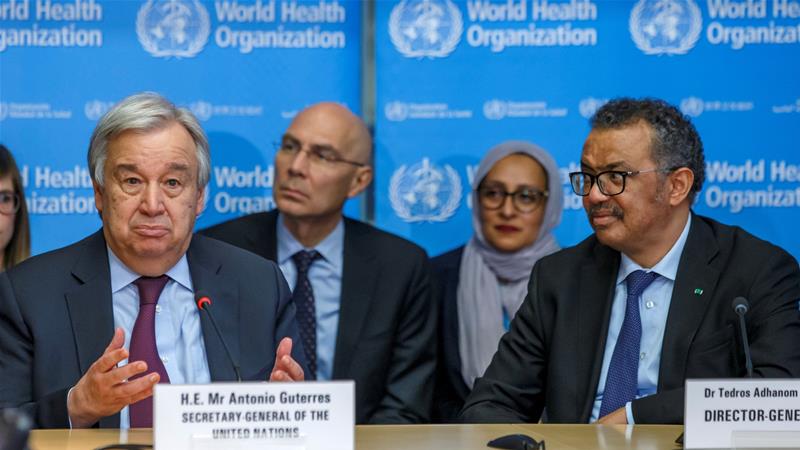The novel coronavirus is neither seasonal, nor does it occur in waves, the World Health Organization (WHO) said Tuesday.
WHO spokeswoman Margaret Harris said in answer to questions at the twice-weekly UN press briefing held virtually in Geneva that the COVID-19 virus likes all weathers unlike influenza, even though many people think it is seasonal.
“And even though respiratory viruses, in the past, did tend to do this, you know, different seasonal waves. This one is behaving differently. This one is one where we have to be aware, and it is learning about us as we’re learning about it,” said Harris.
“It’s a virus that likes all weather. But what it particularly likes is jumping from one person to another when we come in close contact, so let’s not give it that opportunity.”
Asked about the second wave of the virus, she said: “We are in the first wave.
“It’s going to be one big wave, it’s going to go up and down a bit. Now the best thing is to flatten it and turn it into just something lapping at your feet.
“But at the moment, first, second, third wave — these things don’t really make sense.”
She went on to say “there is a huge outbreak”.
“The most intense and the highest numbers are being experienced in the USA. They are in the middle of summer. Also, Brazil, they are an equatorial country.”
Of the nearly 16.5 million cases globally, the US on July 28 had more than 4.29 million cases confirmed with 148,056 deaths, the Johns Hopkins University Coronavirus Resource Center said.
“We also have seen large outbreaks and very warm equatorial countries like the Philippines. So, each season does not seem to be affecting the transmission of this virus currently,” said the WHO spokeswoman.
What is affecting the transmission of COVID-19 is mass gatherings, she said.
“It is people coming together and people, not social distancing, not taking the precautions to ensure they’re not in close contact.”
Harris said it is vital to be aware that countering COVID-19 needs what is known to work: “social distancing, the handwashing, protecting the source” and wearing a mask when asked to indoors and assuring the mouth is covered during a cough.
Also “ensuring you stay home if you’ve got any symptoms at all, ensuring that if you’ve been in contact with somebody known to have the virus that you identify yourself and self-isolate,” said Harris.













